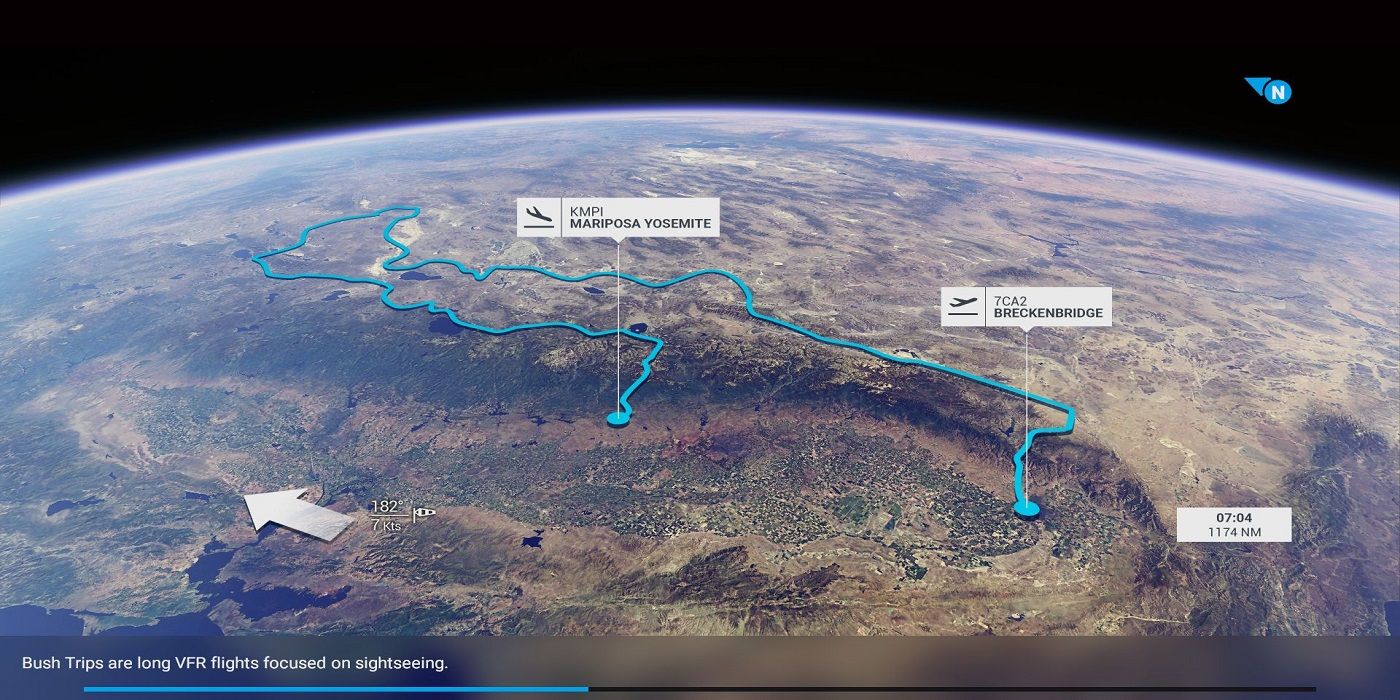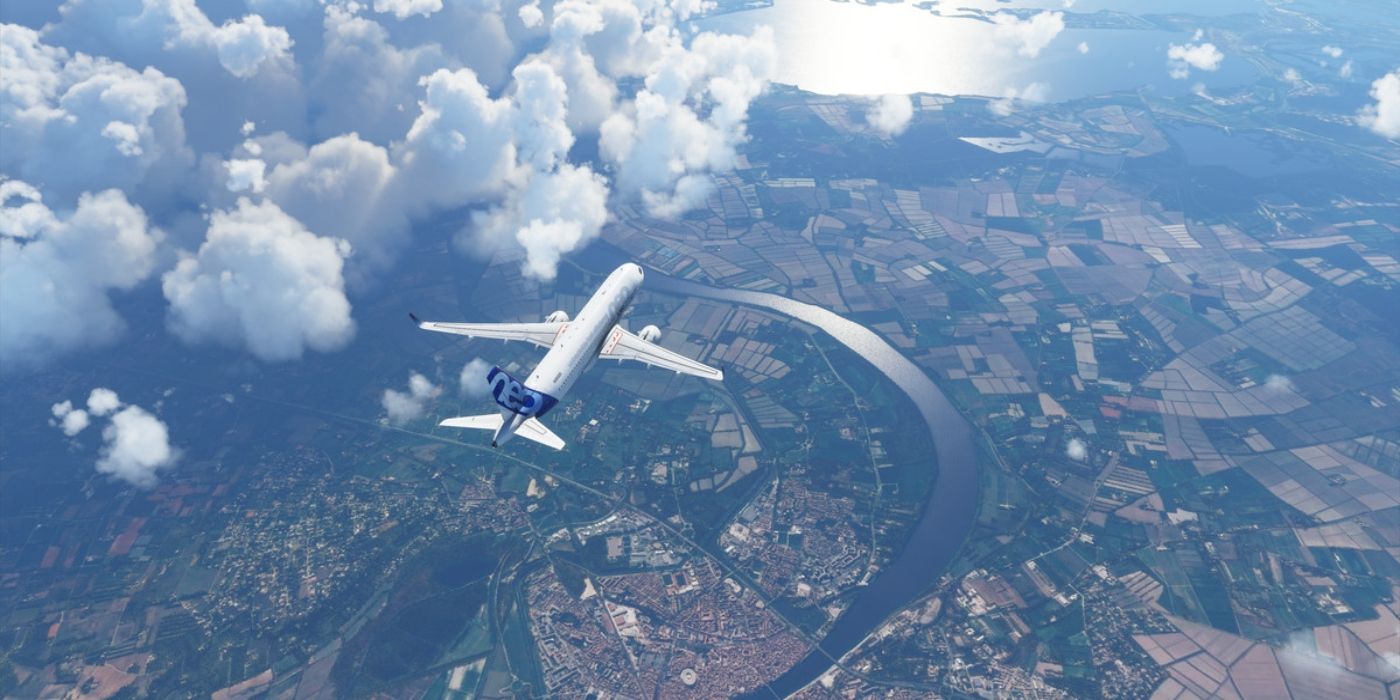Game Rant recently had the chance to speak to James Gwertzman, the head of cloud gaming services at Microsoft. Gwertzman was one of the early pioneers in making cloud technologies specifically for video games, and since his company, PlayFab, was acquired by Microsoft three years ago, he has worked to improve the ever-expanding online components of countless titles big and small. In our interview with Gwertzman, he covered many topics from the future of machine learning to views on console exclusives, but an early discussion of Flight Simulator revealed one of his most interesting predictions for the games industry.
Microsoft Flight Simulator was one of the standout games of 2020 simply because of the scale of its ambition. Many people played it, whether hardcore simmer or not, just because of the staggering feat of re-producing the entire world, trees, houses, and all in a video game. Not only that, but real-time weather data, real-time commercial flight data, and regularly updated satellite imagery and landmarks lend this simulator an almost absurd level of realism.
The game is so large that,even with a massive download, most of the data has to be streamed to users in real time as they fly along. It seemed at the time that few companies other than Microsoft—with its access to so much data and technology—could make something of that scale and deliver it to so many users. Gwertzman, however, believes that won't be the case for long.
I love talking about Flight Simulator. In my mind, this is the perfect example of a cloud native game that would not be possible without the cloud. But... it’s not that this is a game that was only possible at the scale of a Microsoft. It was only possible at the scale of the cloud. One of the cool things is you don’t have to be a very big company to be able to use the cloud at that level.
One of the things this game did that was so remarkable was that it took satellite data from all over the earth... so that AI could take the satellite images and imply geometry- make up geometry for the whole planet in a way that would have been impossible for humans to do. It would’ve been tens of thousands of artists building the earth in 3D, but the computer can do it.
Once you’ve built the model once and it works, once you’ve trained it, you can run the model on the entire earth, and it only took 72 hours. It took a massive amount of compute power, but that’s the advantage of the cloud. You can grab thousands of servers for 72 hours and then release them when you’re done. That’s expensive, but you don’t have to be a big company to do that. You can lease the data from somewhere and rent the server space.
It was shocking to hear that once the satellite data was acquired and a good enough AI was built, it only took 72 hours to render the entire planet in 3D. With the kind of computing power that would take, one might expect weeks or more for an AI to process that much data. And, while players have discovered the occasional error in Flight Simulator's algorithm, there are actually relatively few issues for something of that scale. We had to ask, though: What happens next after a project of that size? Will we get to see more games that tackle Flight Simulator-esque worldbuilding again in the near future?
First of all yes, we will see more projects of that scale.... I think what’s going to happen is you’re going to start to see specialization of the value chain. I’ve often said, for example, that the world of Red Dead Redemption—the amount of effort that Rockstar put into that—and to only use it for one game almost feels like a waste. It’s almost like you want to build that entire world and then have multiple games in that world. I could see a company emerging that only builds worlds, and then other companies can just lease or rent out the world for other games. Look at a game like Cyberpunk. Part of the cost of building that game was building the whole world out. What if someone else built the world, and you just borrowed it like a backlot at a movie studio and had a live updated version for your game?
Some of these predictions may seem far-fetched, but they're likely a lot closer to being reality than they seem. It's not hard to imagine that the world Microsoft built for Flight Simulator—as Gwertzman put it, Earth's "digital twin"—could be used for countless other projects and games, especially as it is continually updated with more data.
Microsoft Flight Simulator is Available for PC and Xbox Series X.


